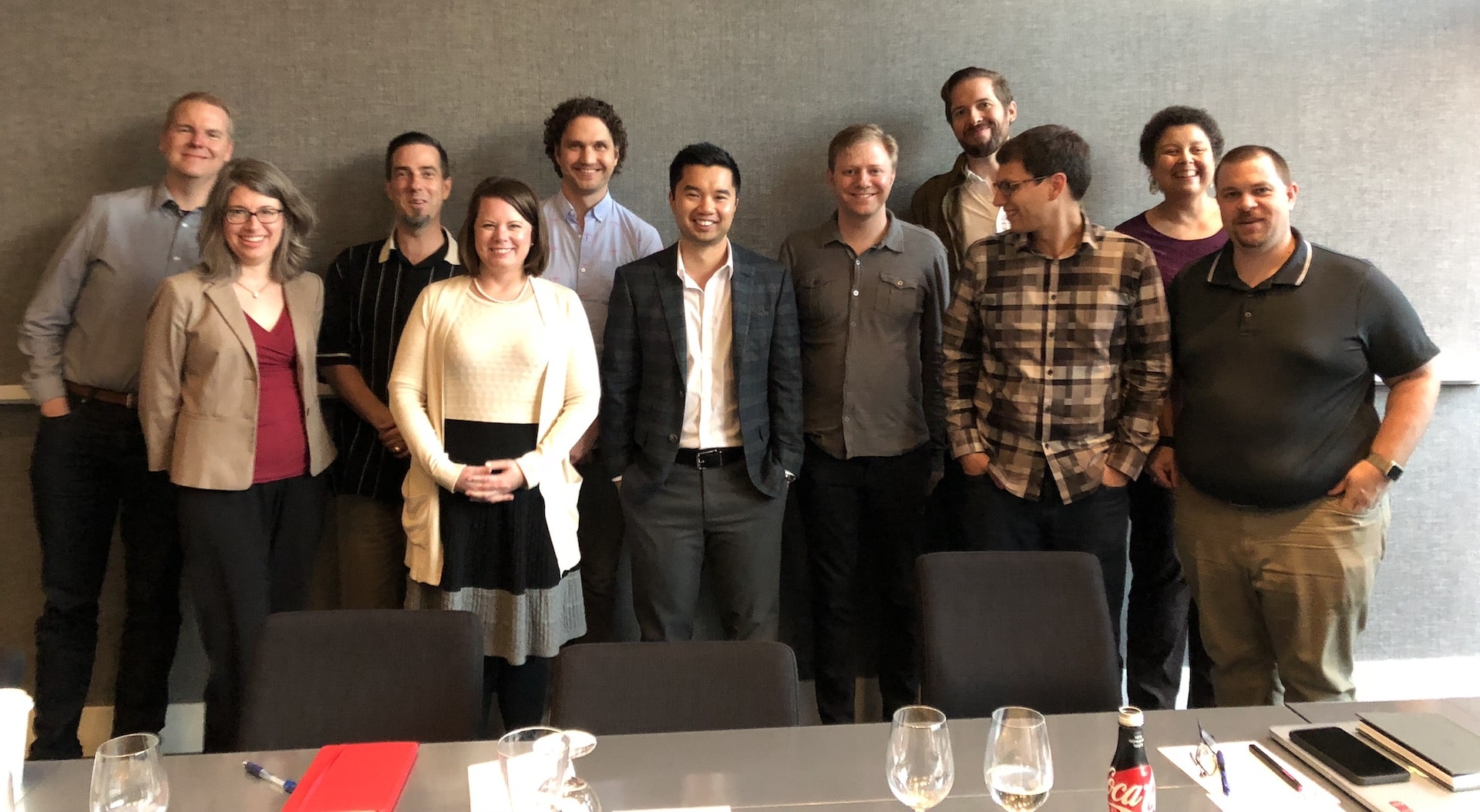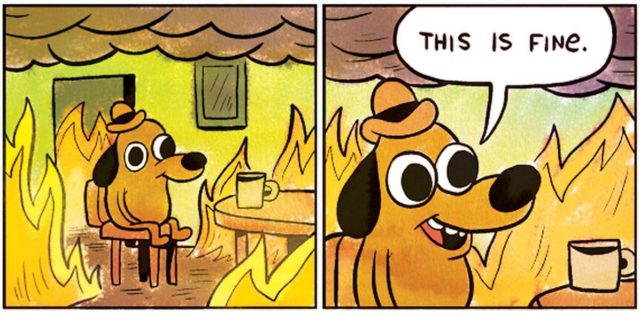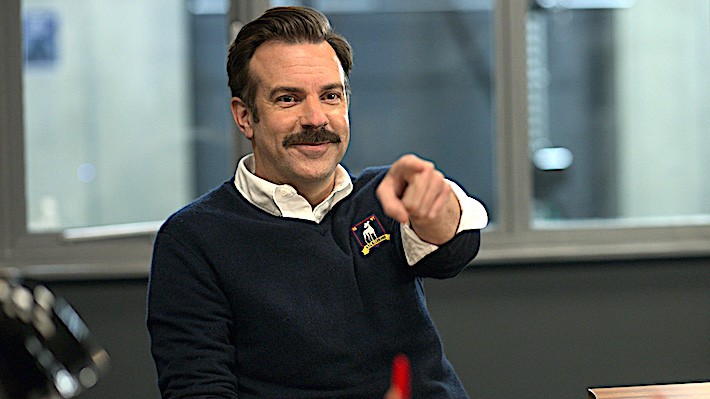A few years ago, I flew down to Austin, Texas, to attend my first AE Mastermind. We gathered together a few clients, holed up in a room in the W Hotel, and worked through their productivity roadblocks and goal setting.

The Mastermind was great, but what happened at dinner that night was next-level.
We walked over to a great local restaurant (does Austin have any bad restaurants? I haven’t experienced one), spouses or partners in town joined, and the usual dinner table chit-chat started up.
Thanh did a little thank you speech and then said, “Let’s do a Roundtable of Gratitude.”
The attendees had a quizzical look on their faces, but the AE team members smiled and knew: this exercise is a regular part of our weekly and monthly meetings.
We went around the table and expressed something we were grateful for. There were no parameters: it could be something from the Mastermind, something from work, something from our life, anything at all.
By the end, the feeling at the table was electric. There was a feeling of connection from the shared experience, yes, but there was also a sense of overwhelming positivity just from that one simple exercise that is hard to express in written form.
What Makes Gratitude So Helpful?
What was it about this experience that made it so powerful? Why do studies show that gratitude and expressing a grateful outlook heightens well-being?
Harvard Health Publishing puts it well:
In positive psychology research, gratitude is strongly and consistently associated with greater happiness. Gratitude helps people feel more positive emotions, relish good experiences, improve their health, deal with adversity, and build strong relationships.
The benefits of gratitude are simple:
- If we focus on negative things, it is natural we will feel more negative
- If we focus on positive things, it is only natural that we will feel more positive
So the more you can intentionally bring positivity into your life, the more your thoughts will tend over time to be more optimistic.
Introducing more gratitude into your life can help you increase your energy, which is a key component of our TEA Framework.
It is also a powerful tool to recover from a bad day, even when you are in the middle of it.
Gratitude is also a helpful centering tool to help us be present.
It is so easy to get lost thinking about the future (“I can’t stop thinking about these problems I am maybe going to have someday!!”) or the past (“I can’t stop thinking about what I should have done or said!!”)
Gratitude encourages you to think, even just for a moment, about what is happening right now.
Types of Gratitude
I think of gratitude as having two high-level types:
- Internal Gratitude: This is gratitude that you express only to yourself. There are many forms it can take, but there is one intended audience: you.
- External Gratitude: This is the gratitude you express to others. It could be structured like our Roundtable of Gratitude, or it could be spontaneous. Either way, you are demonstrating that gratitude to others.
I have found both helpful, and we’ll be diving into examples of both.
Isn’t Gratitude Just “Forced Happiness”?

There’s a saying about gratitude I don’t love that goes something like this:
”It’s impossible to be unhappy and grateful at the same time.”
Or, even worse: “It’s impossible to be depressed and grateful at the same time.” 😬
I’m not a fan of these sayings because they undersell how complex our brains, emotions, and circumstances are. It is perfectly valid to be unhappy but still grateful for something.
Gratitude is not about sweeping things under the rug, “turn that frown upside down,” “fake it until you make it,” or pretending things aren’t bad when they are.
If you have a chronic illness, gratitude isn’t going to make it go away. If you have a terrible boss or frustrating co-workers, gratitude isn’t going to make them better.
Also, it is a trap (albeit a tempting and easy one) to use gratitude to compare yourself to others.
- Good: “I’m grateful that my chronic illness is feeling a bit better today.”
- Not Great: “Sure, I have a chronic illness, but I’m grateful that I’m not in the hospital like those other people.”
- Good: “I’m grateful that I live in a beautiful country with fresh, clean water.”
- Not Great: “I’m grateful the river that goes through my town isn’t polluted like that country I read about in The Economist.”
Positivity that relies on (even subconscious) negativity will not have the long-term benefits that you’re looking for.
What gratitude CAN do is replace your negative feelings in the present moment, and over time, the more you build the mental muscle to do that, the more positive you will be naturally.
Internal Gratitude
If you express gratitude for something and no one else hears it, does it even count?
In my experience, yes. When I created my morning routine, I introduced a gratitude component. Before doing this, my mindset for the day mostly correlated with the quality of my sleep and how I was feeling about everything else going on in my work and life.
Since introducing a daily internal gratitude practice, I have found that this “gratitude attitude” has spread throughout the day. When something good happens, I note it because I am “watching out” for gratitude.
When something not-so-good happens, gratitude helps there too. Having a general gratitude attitude can smooth out the rough edges.
It reminds me of a passage from the book Waking Up: A Guide to Spirituality Without Religion by Sam Harris. In the book, he talks about a series of plumbing problems in their home that became worse and worse, and he became more and more enraged.
It culminated with a burst water pipe in the ceiling and water pouring into the room below:
For instance, as I was beginning to rage like King Lear in the storm, my wife suggested that we should be thankful that it was fresh water pouring through our ceiling and not sewage. I found the thought immediately arresting: I could feel in my bones how much better it was to be mopping up water at that moment than to be ankle deep in the alternative. What a relief! I often use thoughts of this kind as levers to pry my mind loose from whatever rut it has found on the landscape of unnecessary suffering. If I had been watching sewage spill through our ceiling, how much would I have paid merely to transform it into fresh water? A lot.
Here are some ways to work internal gratitude into your life.
One Thing I’m Grateful For
Do you already have a journaling practice? If so, add this question to your daily journal or mentally think about it. Writing it down is great, but not 100% required:
What am I thankful for right now?
Ask yourself that question every day, but try to be specific. If you have a partner, family, good friends, or a boss you like, you might feel obligated to be grateful for them.
This “low-hanging gratitude fruit” can become a crutch and a mindless way to skip past the question. Try to avoid this, and instead be thankful for something specific:
- Not great: “I’m thankful for my wonderful kids.”
- Better: “I’m thankful the kids FaceTimed their grandparents without me asking them to.”
- Not great: “I’m grateful for my team at work.”
- Better: “I’m thankful that Marmel and Mary took over the review issue so I could focus on my article.”
Here are some examples of my “one thing” for the past few days:
- “Final game of F’s regular season. Happy to have a break (forever?) from soccer manager stuff.”
- “Enjoying this big West Coast Trail Youtube series by ‘Canadian Entropy’”
- “Slept all the way through the night.”
- “Sore throat seems to be recovering” Note: it did not actually recover that week. 😷
By the way, if you don’t have a journaling practice and want to create one, we have a helpful mini-course in the Productivity Academy that will help you get started.
3 Good Things
If you don’t have a journaling practice already, some people find it is good enough to start the day with three things they are thankful or grateful for.
I stick with one, but if you have time, go for it! Remember not to fall into the “low hanging fruit” trap outlined above.
Strategic Gratitude
So far, I’ve talked about having a gratitude practice in the morning, but there is no reason it has to be that way.
You can express gratitude any time, and it can be a productivity tool (like the ones we talk about in our 3 Lifehacks masterclass) you use throughout the day as needed.
It is funny that I am writing this article today because I put this tool into action a few hours ago.
Writing this article today is “my Frog.” When I planned my day and logged into our Daily Huddle, I expected to start my day by writing it.
It turned out there was an issue with one of our back-end systems, and I had to switch gears and take care of it quickly.
Afterwards, my initial reaction was frustration: frustration with having to do something unexpected, frustration because it was at least partially my fault, and frustration because my perfectly planned writing day was in danger of falling apart.
What did I do to get back on track? A strategic gratitude exercise.
I quickly did the “3 Things I’m Thankful For” exercise, and that instantly reset my thinking, got me back into the gratitude attitude, and I was ready to get to work.
It didn’t change that my day was no longer what I wanted it to be, but it completely changed my mindset and got me back on track.
I highly recommend using “Strategic Gratitude” whenever you feel overwhelmed.
External Gratitude
If you express internal gratitude for your eyes only, external gratitude is for others.
Sometimes that takes the form of telling others that you are thankful for them, and sometimes you may be grateful for similar things as internal gratitude, but you are expressing that thankfulness to others.
There are several ways external gratitude can happen, but here are a few.
The Roundtable of Gratitude
As I mentioned earlier, a “Roundtable of Gratitude” can be a powerful way to end a group meeting or get-together.
At AE, we do it at the end of our bi-weekly Sprint meeting and monthly meeting.
Since we’ve been doing it for many years, here are some tips:
- Take turns: Go around the (real or virtual) table and make sure everyone has a chance to express what they are thankful for.
- Limit it to 1 thing: We used to leave it open-ended, but two things started to happen: First, everyone on the team wanted to make sure that no one was left out, so we made sure to express thanks to each person. This meant that you felt you had to “come up” with something, which lessens the impact. Second, as the team grew, the roundtable took forever. By limiting everyone to one thing, it meant that the one thing would be authentic, organic, and everything moved faster.
- Be specific: I have noticed that once someone says, “I’m thankful for our great team!” Or “I’m thankful for Thanh for being a great leader!” all of a sudden, everyone starts to say the same thing. A specific expression of gratitude is more impactful.
- You don’t have to thank the people there: Remember, you are expressing gratitude. That does not mean you have to only say thank you to the other people on the call. Don’t be afraid to express gratitude for someone, or something, not there. It is better to be authentic.
A roundtable of gratitude does not only have to be a work thing. We do it at family dinners for special occasions. I will be honest and say it usually results in some eye-rolling from our teenagers, but I am confident they will look back on it with… gratitude.
Ted Lasso Has It Right

If you haven’t watched the Apple TV+ show Ted Lasso, the character is an American football coach who moves to London to coach a Premier League football/soccer team called AFC Richmond.
Let’s just say that the people around him never need to wonder if they are appreciated.

Did someone do something for you? Are they doing a good job given the circumstances they are given?
There is no time like the present to let them know. They’ll feel better, and you’ll feel better for spreading the gratitude attitude.
How To Develop The Gratitude Habit
Things like a gratitude journal or a Roundtable of Gratitude seem like they would take a lot of time that you don’t have.
They don’t have to. Tie them to something you’re already doing:
- Already have a journaling habit? Add one question
- Already have a morning routine? Tack on the 3 things exercise
- At a red light on the way to the office? Think of one thing you’re grateful for
- Have a regular team meeting? Finish with a 5 minute Roundtable of Gratitude
- FaceTiming or Zooming with a friend who lives across the country? Tell them you appreciate them
It may feel forced or awkward at first, and there may be some eye-rolling at the beginning, but if you stick with it and are authentic your mindset and life will change for the better in subtle but meaningful ways.
If you struggle, remember:
- Start small. Just one question
- Start with the most insignificant-seeming things. “The barista at Starbucks knows my name.” “My knee didn’t hurt on the treadmill today.” “There were good questions in our staff meeting.”
- Like meditation and mindfulness, a gratitude practice won’t make all your problems go away, but it can help soften the rough edges
I appreciate you!
